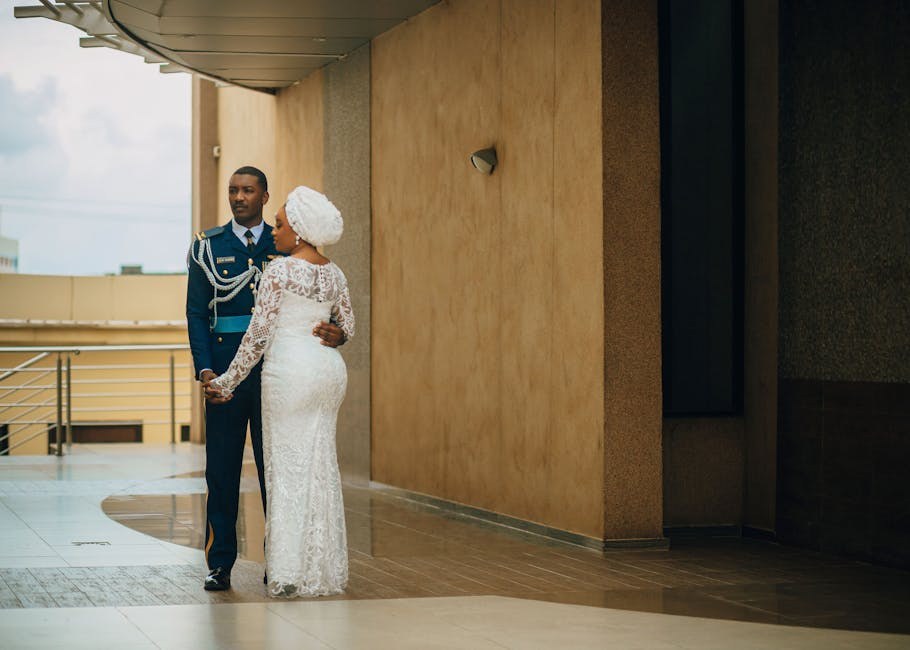Early love is buoyant and bright, the kind of glow that makes small differences feel charming and flaws look like quirks. Then routines set in, calendars fill up, and the very ease you once celebrated can become a sleepwalk. If you’ve started to wonder why the warmth feels cooler or why laughter shows up less often, you’re not imagining it-your relationship is drifting. That feeling can be confusing and exhausting because you may still care deeply for your partner while sensing the future slipping out of focus. This guide reshapes familiar ideas into plain language and concrete themes so you can better recognize what’s happening, especially when a relationship is drifting and you can’t put your finger on the cause.
How closeness fades after the rush
Infatuation is nature’s fast-start button-sparks fly, differences blur, and both partners instinctively try to delight each other. As novelty wanes, closeness no longer runs on autopilot. It asks for small, daily choices: listening when you’re tired, reaching for a hand without being asked, speaking honestly before resentment forms sediment. Without those deliberate acts, the warmth cools by degrees, and the distance can feel strangely normal until-one evening, one argument, one quiet weekend-you realize your relationship is drifting.
That shift rarely arrives with fanfare; it creeps in as distractions multiply and curiosity shrinks. New effort is needed-playfulness returned to the calendar, affection renewed in ordinary moments, and empathy held steady when life turns lopsided. When those efforts go missing, a relationship is drifting even if no one has said the words aloud.

Signals you shouldn’t ignore
- Text threads take longer to revive, and replies grow shorter or more practical-an early nudge that your relationship is drifting.
- Shared jokes land with less sparkle, and quiet moments no longer feel companionable.
- Decisions get made independently, as if you’re roommates managing logistics rather than partners nurturing a bond.
- Small irritations linger for days, which is often how a relationship is drifting long before a “serious talk.”
Core communication and connection fractures
Conversation goes quiet. At the beginning you could talk about everything-the day, the dream, the odd thought you had at lunch. Over time, updates substitute for connection, and practical talk replaces personal talk. When curiosity fades and you stop asking follow-up questions, your relationship is drifting. The fix starts with showing up to conversations the way you show up to important events-on time, attentive, and interested, not merely present.
Suppressed emotions pile up. You brush off comments that sting or swallow concerns to avoid a scene. Nods and half-smiles stand in for honesty. The unspoken doesn’t evaporate-it settles into distance. If you hear yourself saying “it’s fine” when it isn’t, your relationship is drifting. Speaking plainly-kindly, but plainly-rebuilds a bridge that silence keeps taking apart.
Avoiding confrontation becomes the default. Peace at any cost isn’t peace; it’s a truce with a ticking clock. When you’d rather tiptoe around topics than work through them, problems don’t vanish-they harden. That’s when a relationship is drifting, not because you fight, but because you’ve stopped repairing. Courageous, respectful disagreement is the maintenance work love needs.

Resentment sediments. Tiny disappointments-forgotten errands, missed dates, a thoughtless joke-can feel trivial alone. Left unaddressed, they layer into a story: “I’m not prioritized.” When that story goes unchallenged, your relationship is drifting. Clearing the air regularly prevents small hurts from rewriting the entire narrative.
Emotional intimacy thins out. Who do you text first with good news-or bad? If your partner isn’t that person anymore, the inner circle has widened without them. When sharing your inner world becomes optional, your relationship is drifting. Re-open that circle by narrating your day, your hopes, your worries, even the silly stuff that seems too small to matter.
Trust gets shaky. Trust doesn’t erode only through dramatic betrayals; it dwindles via unexplained absences, careless promises, or secrets about money and time. Suspicion crowds out tenderness, and then your relationship is drifting. Repair starts with transparency-clear calendars, clean explanations, and consistent follow-through until safety returns.

Words shrink while screens expand. Sharing a couch isn’t the same as sharing attention. When scrolling becomes the third partner and conversations are postponed to “later,” your relationship is drifting. Create screen-free pockets-mealtime, bedtime, a daily walk-so attention can be felt, not scheduled.
Life pressures and diverging paths
Work crowds the room. Jobs demand energy and focus; ambition and necessity pull hard. When work talk replaces life talk and exhaustion replaces availability, your relationship is drifting. Boundaries help-protecting evenings, defending a day off, or offering the same enthusiasm to each other that you offer clients and bosses.
Parenting pulls focus. Children deserve care, but partnership needs it too. When every ounce of attention goes to logistics and little humans, play between adults evaporates. If you can’t remember your last unhurried conversation that wasn’t about schedules or snacks, your relationship is drifting. Even brief rituals-a shared coffee after bedtime, a Sunday planning cuddle-can re-center the “us.”
Time together gets rationed. You begin living parallel lives-efficient, competent, separate. Independence is healthy; isolation is not. If weeks pass and the only shared activity is co-managing chores, your relationship is drifting. Intentionally put novelty on the calendar: a new trail, a tiny restaurant, a board game-anything that reminds you you’re more than co-executives.
Laziness masquerades as comfort. Cozy is wonderful-until it calcifies. Sweatpants and takeout can become the only date night. If effort feels optional and “good enough” becomes the ceiling, your relationship is drifting. Show effort again: plan a surprise, dress for each other, write a note, make eye contact on purpose.
Initiative stalls. Early on, you invented reasons to delight each other; later, you wait to be inspired. When no one plans, nothing happens. If your calendar reflects only obligations, your relationship is drifting. Take turns being the spark-book the tickets, mix the playlist, propose the out-of-the-ordinary.
Dreams diverge. One of you craves adventure; the other wants roots. One imagines a quiet town; the other sees a city skyline. Differences are survivable, but dismissal is not. When you stop negotiating futures and start planning separately, your relationship is drifting. Name the dream, honor the differences, and hunt for overlaps big enough to hold both of you.
Friendship never fully formed. Chemistry can carry a couple far, yet when the spark dims, compatibility matters. If your partner isn’t the first person you want to debrief with, share a meme with, or be silly with, your relationship is drifting. Cultivate the friendship on purpose-inside jokes, gentle teasing, cheering each other’s tiny wins.
Friction, comparison, and fading romance
Sexual intimacy cools. Desire naturally ebbs and flows, but when touch becomes rare, awkward, or purely functional, connection loosens. If affection feels scheduled or easily skipped, your relationship is drifting. Start with low-stakes closeness-lingering hugs, non-goal cuddle time, affectionate words-so safety can invite desire back.
Emotional affairs creep in. You confide in a colleague, an old friend, or a friendly stranger because it feels easy-no history, no friction. Secrets about that connection form a secret of their own. If someone outside the partnership receives your most tender updates, your relationship is drifting. Reclaim intimacy by bringing vulnerable conversations home and setting clear boundaries elsewhere.
Jealousy and comparison sneak under the door. Envy isn’t just about looks-it can be about careers, families, social ease, or attention. When comparison becomes a scoreboard, generosity shrinks. If wins feel like threats instead of shared joy, your relationship is drifting. Name the insecurity; then choose team language-“our money,” “our time,” “our win.”
Egos outrank repair. Being right can feel safer than being close. You avoid apologizing, weaponize silence, or keep score of who caves first. If pride routinely outruns tenderness, your relationship is drifting. Softening doesn’t mean surrender-it means choosing the relationship over the point.
Incompatibility becomes obvious. Some mismatches reveal themselves only after the early glow fades-how you handle stress, spend weekends, or relate to families. If every plan feels like a compromise nobody enjoys, your relationship is drifting. Honesty about fit isn’t failure; it’s clarity that allows either better collaboration or a kinder parting.
Expectations go unchecked. You picture how love should look-grand gestures, constant texts, a particular tone of voice-and judge reality against that movie. When your private rulebook stays private, disappointment multiplies. If you often think “they should just know,” your relationship is drifting. Trade mind-reading for explicit requests, and make room for different but sincere expressions of care.
Love languages miss each other. One of you hears love through words, the other through acts, time, touch, or gifts. You may both be trying, but on different radio stations. When love keeps getting lost in translation, your relationship is drifting. Translate on purpose: say the sentence, give the hug, schedule the time, offer the help, or wrap the token-whichever lands for your partner.
Putting the pieces in context
None of these themes require blame. Many couples arrive here simply because life is busy and tenderness is quiet. The good news-if you’re both willing-is that distance is directional, not destiny. Notice the ordinary places where effort matters most: initiating a conversation rather than waiting for one, sharing appreciation before criticism, and letting your partner’s inner world be as interesting to you as your own. If that sounds like a heavy lift, start smaller. Pick one pattern you recognize, name it together, and design a single, repeatable habit to counter it. Do that consistently and you interrupt the slide that happens when a relationship is drifting.
Practical ways to nudge closeness back
- Re-introduce curiosity with one daily check-in question that isn’t about logistics-a micro-ritual that helps when a relationship is drifting.
- Schedule delight the way you schedule duty-novelty is an antidote to numbness.
- Offer one genuine appreciation per day-specific, timely, untraded for anything.
- Create a simple repair routine after conflict-own your piece, name one learning, and plan one small change-so your relationship is drifting less with every disagreement.
A different kind of closing thought
Distance doesn’t usually arrive because love disappears-it arrives because attention does. The arc from effortless to intentional is not a failure; it’s the natural evolution of intimacy. If you’ve recognized yourself in these themes, you’ve already taken the first step by seeing clearly. Share what you see, ask what your partner sees, and choose one gentle change you can make today. Tiny, consistent efforts are how you stop the quiet slide that begins when a relationship is drifting. And if clarity eventually reveals you want different futures, facing that truth with kindness is its own form of care-proof that even endings can be generous when a relationship is drifting and both people still want the best for each other.